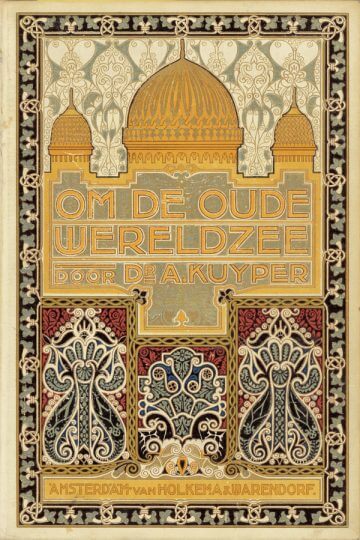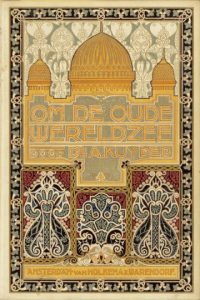In 1905, Abraham Kuyper, the Dutch statesman and theologian, set forth on a journey around the Mediterranean Sea, visiting 80 sites and cities in 20 countries. His travels brought him to ancient lands and some of the most revered sites of Christianity. They also brought him face-to-face, for the first time, with the Islamic world.
When he returned, he wrote a series of reflections on his travels, now captured in a newly translated volume, On Islam, which includes select writings from his original two-volume work, Om de Oude Wereldzee (Around the Old World-Sea).
Through these writings, we see Kuyper’s unique theological and cultural perspective applied across his individual encounters in the Muslim world, as well as to Islam itself.
As editor James D. Bratt explains in the book’s introduction, the collection “aims to show how an outstanding thinker from a century ago spoke to a now-pressing issue in our own age: how Christians ought to regard Islam and its many adherents in all their variety.”
At the time of his journey, Kuyper was an outgoing prime minister of the Netherlands. But while he was traveling primarily as a politician, he also retained his distinct outlook as an educator, theologian, and culture critic, weaving each together in his own inimitable way.
As Bratt explains:
Kuyper brought to his observations the prejudices and preconceptions of his age, plus some fixed mental habits of his own. At the same time he was well prepared to engage his subjects. On the one hand, he was seeing things for the first time, and we can watch him pushing back against various stereotypes with eyewitness accounts and data collected in the field. On the other hand, he had behind him a sterling education and a lifetime of leadership in church, state, and academia. In all three domains, furthermore, he had worked simultaneously as an organizer, an activist, and a theoretician.
In short, Kuyper was something of a Renaissance man, and on his trip he pressed his nose and eyes into everything: theology and political administration, family life and worship practices, universities and elementary schools, the arts and architecture. Religion ran through them all as a unifying thread.
Thus Kuyper examines Islam in its universally accepted core teachings but also across its rival schools of legal interpretation, political contentions, mystical orders, rituals, as well as the course of historical development that lay behind them all. He probes this faith in its social relations, aesthetic principles, gender arrangements, and cultural patterns.
In addition to Bratt’s introduction, the volume includes two more essays that provide additional historical and cultural context: one from Douglas Howard on the political and economic landscape of the western Muslim world, and one from George Harinck on the influence of Dutch colonialism on Kuyper’s writing. It also includes an afterword by Diane Obenchain on how we might apply Kuyper’s various reflections to current Christian-Muslim relations.
Given the political and religious conflicts of our day, On Islam is a fitting addition to these collected works, serving as another strong resource for modern-day believers seeking to understand and engage culture through a Christian perspective.
“For our world,” writes Bratt, “chronically gripped by the fear, and occasionally assaulted by the reality, of Islamic militancy, Kuyper’s mode of grappling with the issue and his hopes for a workable conciliation between powerful religious forces offers a beacon for people who wish to take their faith very seriously and yet live at peace with their neighbors.”
* * *
This post originally appeared on the Acton Institute Blog, posted on December 7, 2017. It is republished here with their permission.






